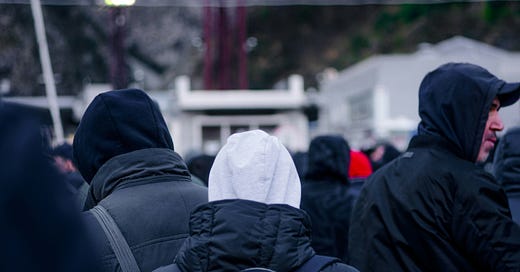Stricter Dutch Asylum Laws Now in Effect Despite Opposition
Groningen and other cities spoke out against new national legislation that criminalises helping undocumented migrants — yet the laws were passed and begin taking effect this week.
Despite strong opposition from the city of Groningen and other major cities, the Dutch House of Representatives passed two controversial asylum laws on Thursday night. These laws are being called the “strictest asylum policy ever” in the Netherlands and could make it illegal to help undocumented people. They also remove priority housing for people with approved asylum status.
What the laws say
The new rules shorten the length of a temporary asylum residence permit from five years to three. They also make family reunification harder and separate asylum seekers into two groups: those fleeing personal danger (like persecution due to religion or sexuality) and those fleeing war or disaster. The second group would receive fewer rights and could be sent back more quickly.
One part of the law, introduced by the far-right PVV party, would make it a crime to live in the Netherlands without legal documents. Helping someone who is undocumented—offering them food, shelter, or care—could also become punishable. This part of the law has not yet been fully reviewed and will first be studied by the Council of State.
Groningen and other cities push back
Earlier this week, Groningen joined cities like Amsterdam, The Hague, and Utrecht in sending a letter to Parliament urging them to vote against these laws. The cities argued that criminalising undocumented people and those who help them goes against basic human rights.
Groningen’s alderman, Manouska Molema, said: “We stand for humane treatment and solidarity. If this law passes, people who have nowhere to go could be punished, and those helping them could also be seen as criminals.”
The cities worry that people without documents will avoid getting help out of fear, making them more likely to be exploited. They also believe that stopping priority housing for asylum seekers will block the flow of people through the asylum system, making it harder to find space for new arrivals.
National debate and what’s next
The vote passed in the House of Representatives, but the law still needs to be approved by the Senate (Eerste Kamer) after the summer break. The Christian Democratic Party (CDA), which might play a key role in the Senate vote, opposed the law in the House. They criticised the rushed way the laws were handled and called the process chaotic.
These laws come after the fall of the Dutch government, which collapsed partly over disagreements on asylum policies. Migration is expected to be a major topic in the next election on October 29.
If the Senate rejects the laws, they will go back to the House of Representatives for changes. If they pass, they will become law, changing the asylum system and potentially criminalising undocumented people and those who assist them.





